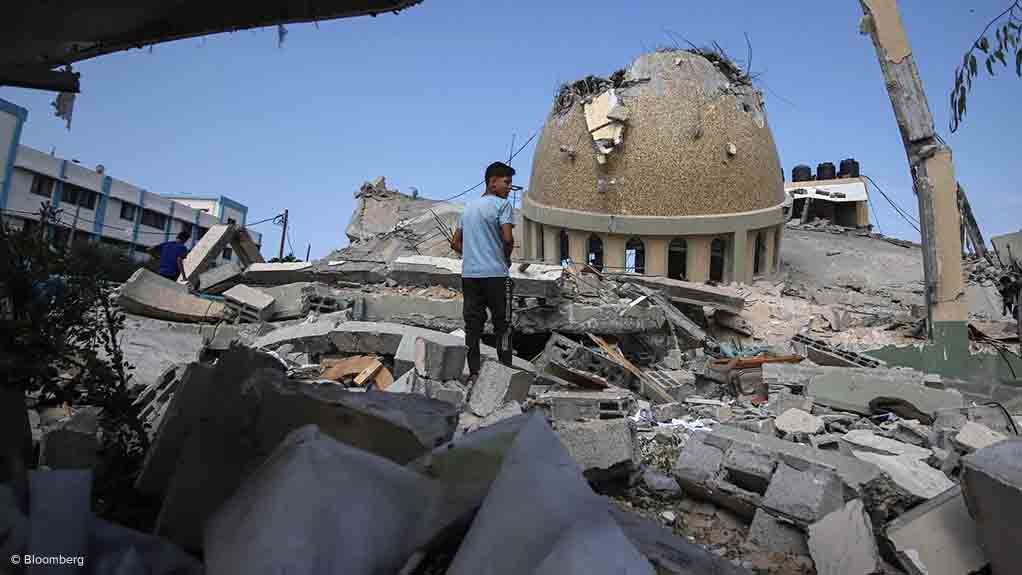On Saturday, South Africa made clear its stance on the then freshly escalating war between Hamas and Israel.
"The region is in desperate need of a credible peace process," said the Department of International Relations and Cooperation in a statement it has since not seen fit to expand on.
And that peace, South Africa believes, can only come by way of a "contiguous Palestinian state existing side-by-side in peace with Israel, within the 1967 internationally recognised borders, with East Jerusalem as its capital".
But when, or perhaps if, there is such a peace process, there will be no direct role for South Africa to play, experts in international relations said this week. Israel will not accept South Africa as a mediator, host or even a logistical supporter. Even with its outsized influence on the African Union, which Israel has courted for years, South Africa has no meaningful leverage it can wield. It is, diplomatically, a non-entity in the new Gaza war.
What it could offer, though, are back channels and condemnation.
"Iran is joining BRICS, we have a door there. We're on speaking terms with Turkey, we're on speaking terms will all the neighbours [of Israel that are affected," said Anthoni van Nieuwkerk, a professor of international and diplomacy studies at Unisa's Thabo Mbeki African School of Public and International Affairs. "
"There is some footwork our diplomats can do behind the scenes there to prepare for some kind of peace deal."
Iran denies that it provided logistical support for the latest Hamas attack, though it's not clear that the likes of the US believe it. Either way, it is an important regional player, with few friends in common with those countries that can influence Israel.
Van Nieuwkerk argues that South Africa simultaneously has the ability to reach out to Nato countries, which have "militarised and securitised their diplomacy", to push them towards building bridges.
Over time, that may help peace along. But that is as high as South Africa can aspire, he believes, as "there is no room for our kind of reconciliatory deal-making" in the Israeli-Palestine war.
Swaying the West, as an ally of Palestine
The South Africa of today cannot play peacemaker in the way it might have been able to in 1994, says Rhodes University emeritus professor of political and international studies Paul Bischoff. But it can meld its strong support of the Palestinian cause to push back against what seems like a troubling abandoning of moral ideals.
"The troubling thing is that, for all intents and purposes, it seems like the West has given Israel carte blanche on what to do with Gaza, ignoring the fact that, as an occupying power, Israel has obligations under international law. Those seem to now have been waived."
With a humanitarian catastrophe rapidly developing in the besieged Gaza, said Bischoff, South Africa can use its more distant position to argue for international law to be upheld, to plead for humanitarian corridors to be opened, and perhaps also "to prevail on Qatar and Egypt to work towards having hostages released".
There is no winning Israel's trust, but at least South Africa can "remind the EU about what it has always purported to be about, respecting and being concerned with humanitarian values and respect for international law", he said.
Leading Africa, but not to anywhere of note
Steven Gruzd, a political analyst at the SA Institute of International Affairs, has for years watched Israel courting the African Union and various African states, with success in Rwanda, Senegal and the Democratic Republic of Congo.
Israel sees opportunity in Africa in fields such as agriculture, security and high-tech industries, he said, and is part of a tussle for African votes in the UN and other multilateral organisations.
South Africa has a great deal of power in steering the continental debate and eventual policy. But that won't matter in this case.
"I don't t think Israel would give two hoots what the AU says about this conflict," said Gruzd, with the exception of Gaza's neighbour Egypt.
Egypt is likely to have a role, perhaps a significant one, in what comes next, but it is not particularly influenced by South Africa.
What South Africa will contribute, just about every analyst agrees, is a significant amount of rhetoric and noise – and not that much substance.
EMAIL THIS ARTICLE SAVE THIS ARTICLE
To subscribe email subscriptions@creamermedia.co.za or click here
To advertise email advertising@creamermedia.co.za or click here











